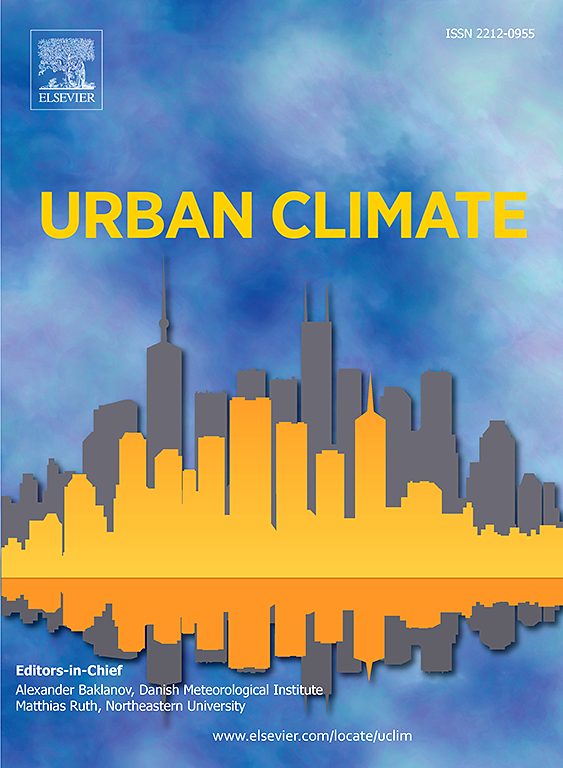Machine learning-driven analysis of agro-climatic data for temperature modeling and forecasting in Philippine urban areas
IF 6
2区 工程技术
Q1 ENVIRONMENTAL SCIENCES
引用次数: 0
Abstract
The effects of climate change in the Philippines call for effective strategies to improve resilience, especially in urban areas. Machine learning models are now being used to provide data-driven insights for climate action, in particular, to address urban overheating. In this context, this paper developed machine learning models by using agro-climatological data to predict the maximum temperature at 2 m (in °C) in Manila and Dagupan, Philippines, with 32 predictors. A pipeline of standard scaling, principal component analysis, regression models, and time-series models were used for forecasting. It was found that the multilayer perceptron (MLP) regressor had the best test forecast performance in the Manila data, with an of 0.8128 and MSE of 0.9334, even without autoregressive information. Meanwhile, Long Short-Term Memory was found to have comparatively decent performance with a test of 0.6452 for the case of univariate autoregressive forecasting. We also prove that the models are location-specific since the model trained at Manila data yields inaccurate results when transferred to the Dagupan data. With more accurate forecasts of maximum temperature, policymakers can make more informed decisions toward a more sustainable living in Philippine cities.

机器学习驱动的农业气候数据分析,用于菲律宾城市地区的温度建模和预测
气候变化对菲律宾的影响要求采取有效的战略来提高抗灾能力,特别是在城市地区。机器学习模型现在被用于为气候行动提供数据驱动的见解,特别是解决城市过热问题。在此背景下,本文利用农业气候数据开发了机器学习模型,利用32个预测因子预测菲律宾马尼拉和达古潘2米(°C)的最高温度。标准标度、主成分分析、回归模型和时间序列模型的流水线用于预测。发现多层感知器(MLP)回归量在马尼拉数据中具有最好的检验预测性能,即使没有自回归信息,其R2为0.8128,MSE为0.9334。同时,长短期记忆在单变量自回归预测情况下具有较好的表现,检验R2为0.6452。我们还证明了模型是特定于位置的,因为在马尼拉数据训练的模型在转移到达古潘数据时产生了不准确的结果。有了更准确的最高温度预测,政策制定者就可以做出更明智的决定,让菲律宾的城市过上更可持续的生活。
本文章由计算机程序翻译,如有差异,请以英文原文为准。
求助全文
约1分钟内获得全文
求助全文
来源期刊

Urban Climate
Social Sciences-Urban Studies
CiteScore
9.70
自引率
9.40%
发文量
286
期刊介绍:
Urban Climate serves the scientific and decision making communities with the publication of research on theory, science and applications relevant to understanding urban climatic conditions and change in relation to their geography and to demographic, socioeconomic, institutional, technological and environmental dynamics and global change. Targeted towards both disciplinary and interdisciplinary audiences, this journal publishes original research papers, comprehensive review articles, book reviews, and short communications on topics including, but not limited to, the following:
Urban meteorology and climate[...]
Urban environmental pollution[...]
Adaptation to global change[...]
Urban economic and social issues[...]
Research Approaches[...]
 求助内容:
求助内容: 应助结果提醒方式:
应助结果提醒方式:


